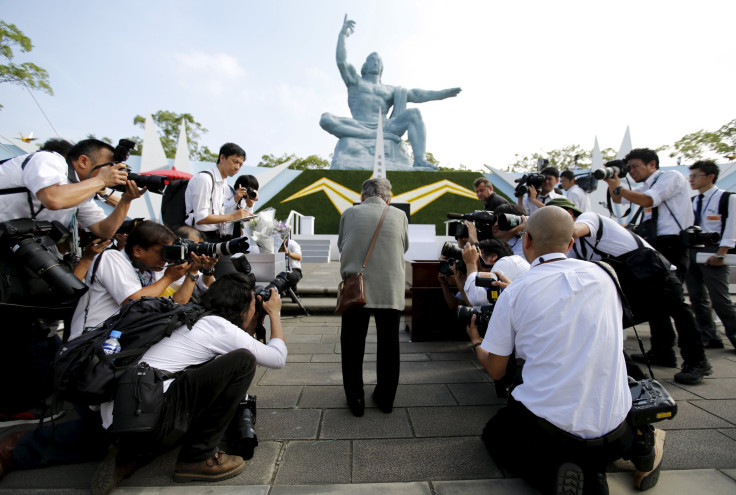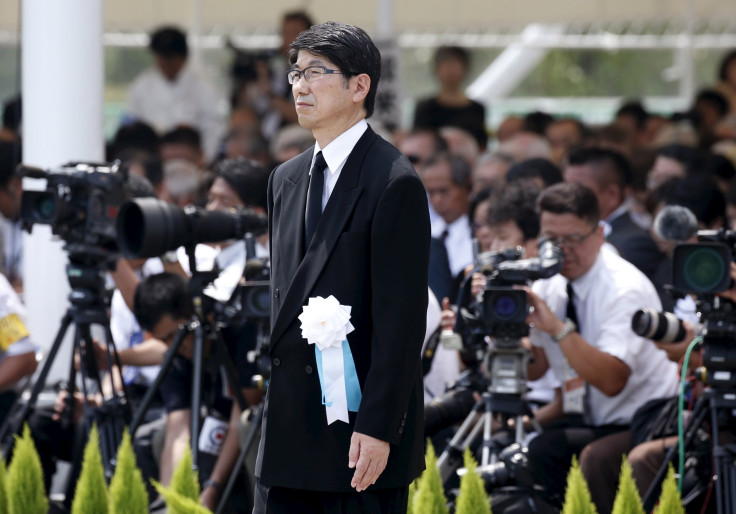On 70th Anniversary Of Nagasaki Bombing, Americans Look Back As Japanese Look Forward

Seventy years after the U.S. bombed Nagasaki, killing at least 75,000 civilians in the second nuclear attack on Japan in three days, the bombing continues to stir debate in both countries. In a ceremony that featured survivors recounting their horrific experiences, Nagasaki Mayor Tomihisa Taue called Sunday for the abolition of nuclear weapons and joined peace activists in denouncing proposed security legislation that would move Japan to a stronger war footing.
“As generations that were born after the war constitute the majority of the people, memories of the war are waning rapidly from our society,” the Asahi Shimbun quoted Taue as saying. “As 70 years have passed, what we need to do is to pass on those memories.”

Doves were released and a moment of silence was observed at 11:02 a.m., the time of the historic explosion that American military leaders argued helped precipitate the conclusion of World War II.
That history remains divisive in the U.S., where the debate over President Harry S. Truman’s decision to nuke Japan continues to this day. An American bomber had dropped a nuclear warhead on Hiroshima three days earlier, killing some 140,000 people. Military officials argued the human costs of a continued ground war would have been far worse.
The Japanese had not yet surrendered at the time of the Nagasaki bombing. But a concurrent Soviet invasion of Japan-held regions in China had made a resolution of the war increasingly likely, critics argue.
Since Japan’s surrender, the country’s military has been sharply limited in its capabilities. But increasing tensions with China have prompted the government to take steps toward an expanded military presence. Prime Minister Shinzo Abe has championed measures detractors call “war bills,” leading to widespread protests across the nation.
Sumiteru Taniguchi, a survivor of the Nagasaki bombing, warned at the ceremony Sunday that the new policies “will lead to war,” the Associated Press reported. He continued, “We cannot accept this.”
Abe, who was also present at the ceremony, reiterated his critics’ call for nuclear disarmament.
© Copyright IBTimes 2024. All rights reserved.





















